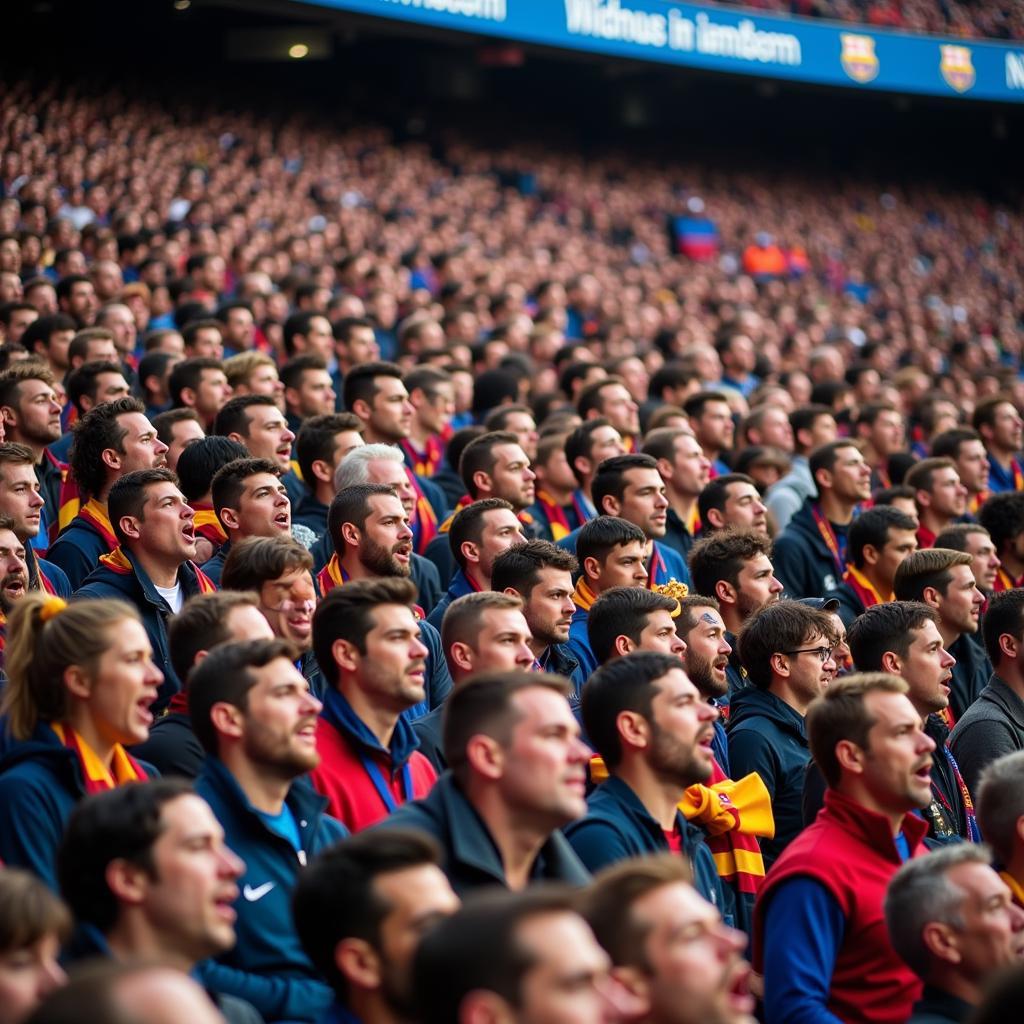From the stands of Anfield to the heart of the Bombonera, football fans are more than just spectators – they’re the lifeblood of the game. Their unwavering passion, loyalty, and collective voice create a dynamic and exhilarating atmosphere that defines the very essence of football culture. Fan movements, in particular, are transforming the landscape of the sport, wielding unprecedented influence and shaping the future of their beloved clubs.
The Evolution of Football Fandom: From Spectators to Stakeholders
 Fans chanting in a packed stadium
Fans chanting in a packed stadium
Gone are the days when fans passively consumed the game. Today’s supporters are more engaged, informed, and organized than ever before. Social media, online forums, and dedicated fan platforms have empowered fans with a global reach, allowing them to connect, mobilize, and amplify their voices like never before.
This digital revolution has fueled the rise of sophisticated fan movements, transforming them into powerful stakeholders capable of influencing club decisions, shaping public opinion, and even driving social change.
The Power of Collective Action: How Fan Movements Make a Difference
 Fans protesting with banners and flags outside a football stadium
Fans protesting with banners and flags outside a football stadium
Fan movements derive their strength from unity and collective action. By harnessing the power of their numbers, they can exert pressure on clubs and governing bodies to address concerns ranging from ticket prices and ownership models to social justice and equality within the sport.
One of the most striking examples of this collective power is the recent fan-led protests against the proposed European Super League. The overwhelming backlash from supporters across Europe forced the architects of the controversial competition to quickly back down, demonstrating the ability of united fan movements to effect real change.
Beyond the Pitch: The Social Impact of Fan Movements
 Football fans volunteering at a local charity event
Football fans volunteering at a local charity event
The influence of fan movements extends far beyond the confines of the football pitch. Many supporter groups are deeply involved in charitable work, community initiatives, and social justice campaigns, leveraging their platform and resources to make a tangible difference in the lives of others.
Whether it’s raising funds for local charities, combating discrimination within the sport, or promoting sustainability initiatives, fan movements are increasingly recognized as agents of positive social change.
The Future of Football: Embracing the Fan Movement
The relationship between football clubs and their fans is evolving, and embracing the power of fan movements is crucial for the future of the sport. Clubs that prioritize fan engagement, transparency, and collaboration are more likely to foster a loyal and passionate supporter base.
From incorporating fan feedback into decision-making processes to creating dedicated fan engagement platforms, there are numerous ways for clubs to harness the collective power and passion of their supporters.
Conclusion: The Heartbeat of Football
Fan movements are the heartbeat of football, injecting the sport with unmatched passion, loyalty, and a commitment to driving positive change. As the influence of these movements continues to grow, embracing their power will be essential for clubs, governing bodies, and all stakeholders who cherish the beautiful game. The future of football is undeniably intertwined with the voices and actions of its most dedicated supporters.


